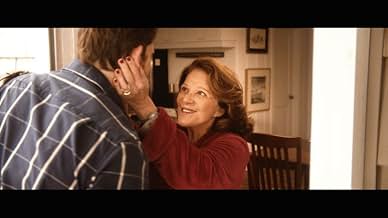A quietly elegant little movie (because it refuses to push anything) about family and the finale of the older generation, A SHORT HISTORY OF DECAY, written and directed by first-timer Michael Maren, is a beautifully rendered piece of Americana as it exists today, mid economic (and most every other kind of) decline. And yet this movie is not actually depressing. Oddly enough, it is simply too plain and too real for that. It accepts what is and must be (even if its characters have some difficulty doing so) and therefore liberates us, the audience, to look upon reality and understand it.
Mr. Maren, shown at left, is no spring chicken; his career and interests prior to filmmaking seem to have groomed him to look at life and people and events with a dry, incisive eye. Along the way in this movie, and without making any big thing of it, he quietly nails odd moments of family behavior, sibling (and spousal) rivalry, right through to that instant in which our near-hero sees an attractive woman on the beach and a moment later we realize that it's his aging mother -- mistook or maybe remembered from a much earlier time. You don't get this kind of stuff in most American independent movies, and certainly not served up as well and in such unshowy fashion.
We begin in the ever more gentrified Brooklyn, in which our slacker leading man, Nathan (the first-rate Bryan Greenberg, above), less a failed writer than one who has simply never finished anything, begins a morning dispute with his significant other, Erika (Emmanuelle Chriqui, below), a high-powered woman with a first novel about be published. How this scene ends is both funny and surprising.
An unexpected phone call regarding his parents sends Nathan down to Florida, to mom (Linda Lavin, below, right), dad (Harris Yulin, below, left) and -- eventually -- older brother (Benjamin King), where, of course, family history, along with past and present problems bubble up and spill over. Aging, Alzheimer's, stroke, money problems, love and lust jockey for position, but Maren never lets any one thing take the lead for long. He juggles character and events with consummate skill, balancing the comedy of life with its inevitable tragedy -- and shows us a lot of the interesting moments in between.
You might call the film a kind of comedy, but it's so quiet and unforced that you'll smile more readily than laugh out loud. The drama is certainly there, yet it's so unforced that it never for a moment becomes melodrama. Characters are written and acted very well by the entire ensemble cast -- which includes a lovely, radiant and savvy Kathleen Rose Perkins (below) as mom's manicurist; a hot, svelte Rebecca Dayan as the young lady Nathan meets at a local bar/restaurant; and Barbara Weetman as the smart, if slightly pushy bartender.
What is especially remarkable here is how clever are the performers, together with their writer/director, in never going too far. They behave, rather than "act." Less is more has rarely proved so enjoyable or so on-the-mark.







































